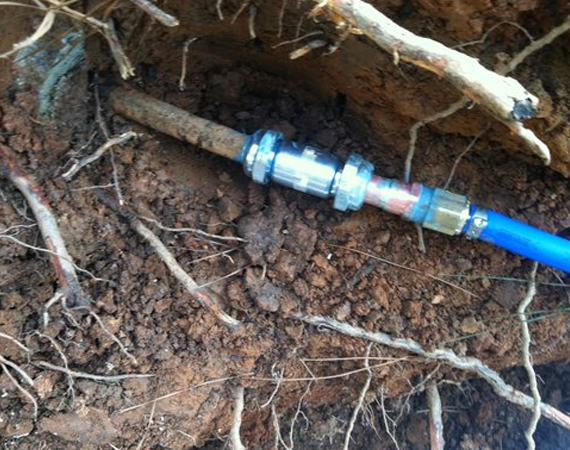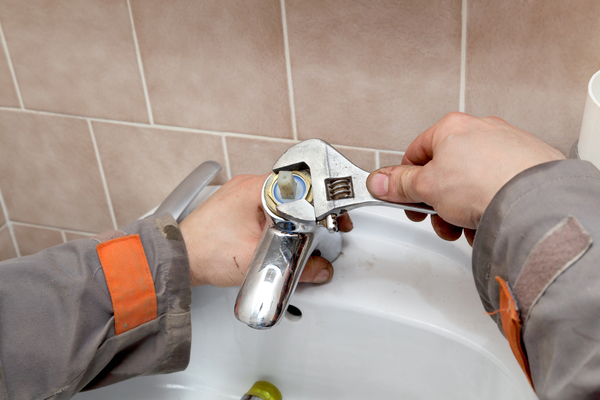What are your ideas about How to Find and Prevent Water Leaks in Your Home?

"Be careful of little expenses. A small leakage will sink a great ship." - Benjamin Franklin.
He couldn't have actually been extra best because water leaks in our houses cause a waste of sources, increasing our water bills. Although this increase might seem negligible initially, it can lead to considerable costs that can break your bank. Besides a boost in expenses, water leaks likewise trigger unwanted organic development, architectural damages, as well as also electrical dangers.
Determining if you have a water leakage isn't always very easy due to being unable to see most of the pipework in your house. Nevertheless, If you have had a rise in your water bills lately, observed water stains on ceilings as well as walls, smelt poor odor, etc. You could wish to think about requesting plumbing services to get it had a look at.
There are several sources of water leakages, as well as we have actually compiled the usual factors below. Examine to see if you have had related concerns in your house recently.
Damaged pipeline joints
Pipe joints are the parts of our plumbing system where the pipelines link. They are the weakest factor of our plumbing system. Consequently, they are more prone to deterioration. It is important to note that although pipes are created to withstand pressure as well as last for some time, they weren't designed to last permanently; consequently, they would certainly deteriorate with time. This deterioration could result in fractures in plumbing systems. A typical indicator of harmed pipeline joints is too much noise from taps.
High water stress
You noticed your home water pressure is higher than common yet after that, why should you care? It's out of your control.
It would certainly be best if you cared since your ordinary water pressure need to be 60 Psi (per square inch) as well as although your residence's plumbing system is developed to hold up against 80 Psi. An increase in water stress can place a strain on your house pipelines and cause splits, or worse, burst pipes. If you ever before see that your home water pressure is greater than common, get in touch with an expert regarding controling it.
Rust
As your pipework ages, it gets weak as well as much more vulnerable to rust after the constant flow of water through them, which can gnaw at pipelines and also trigger cracks. A noticeable indicator of deterioration in your home plumbing system is discoloration as well as although this might be tough to find as a result of a lot of pipes hidden away. We advise doing a frequent appointment every couple of years and change pipes once they are old to ensure an audio plumbing system
Blocked drains
Food fragments, dust, and oil can trigger clogged up drains and block the flow of water in and out of your sink. Boosted stress within the rain gutters can create an overflow and end up fracturing or bursting pipelines if undealt with. To avoid clogged drains in your home, we advise you to prevent pouring particles down the drain and regular cleansing of sinks.
Busted seals
One more root cause of water leaks in residences is broken seals of home devices that make use of water, e.g., a dishwashing machine. When such home appliances are mounted, seals are mounted around water ports for very easy passage of water via the maker. A broken seal can cause leakage of water when in usage.
With little or no knowledge of plumbing, comprehending your house's plumbing system enough to take care of several of these concerns (without effect) can be a trouble. Get in touch with plumbing experts in Pittsburgh, Providence, Rochester, and environ today, and they'll make those problems disappear.
He couldn't have actually been extra appropriate because water leakages in our residences result in a waste of sources, enhancing our water expenses. If you have had an increase in your water bills recently, discovered water stains on ceilings and wall surfaces, smelt lousy odor, and so on. A rise in water pressure can put a pressure on your home pipes as well as lead to splits, or even worse, ruptured pipes. One more reason of water leakages in residences is damaged seals of house devices that utilize water, e.g., a dish washer. When such appliances are installed, seals are installed around water ports for simple passage of water with the device.
5 TIPS IN DETECTING A WATER LEAK IN YOUR HOUSE
Water leaks can be hard to find in your home, yet they can be so common. We rely on water every day in our home, which is why a leak can cause big problems. By detecting them early, you can save money and further damage, getting the problem fixed as soon as possible. Here are 5 tips to help you detect a water leak in your home, so you can contact a plumber straight away and get the issue sorted.
Check your water meter
Many people underestimate the value of the water meter in their home. It can be one of the best ways to tell if you have a leak early on, so you can get on top of it before issues start arising. Start by turning off all the water in your home: taps, washing machine, dishwasher, etc. Now take a look at the meter – if it’s still changing with everything turned off, it’s likely you have a fast-flowing leak that you need to get on top of straight away. If nothing changes, then leave your meter for an hour or two and come back to it. Did it change in this time? It’s likely you have a slower leak, which isn’t as urgent but still handy to get fixed so it doesn’t become a bigger problem.
Keep an eye on your bill
Another good way to detect a leak in your home is by keeping an eye on your water bill. It helps if you have a past bill from the same period of time. You can compare like for like and determine whether your water usage has increased significantly. If it has, there may be a leak in your system that you haven’t picked up before. A professional plumber can check through all of your pipes and determine where it is coming from.
Look for damage
If you have a leak inside your home, you will notice damage over time. Take a look at your showers and bathtubs and note whether any of the tiles surrounding the area seem to be discoloured or damaged in any way. There may be water stains, mould or peeling material that has resulted from a build up of moisture over time. Make sure you take a look under sinks at the back of cupboards that don’t get accessed regularly. This is where damage can go unnoticed and build up over periods of time.

Do you really like reading up on How to Find and Prevent Water Leaks in Your Home? Leave feedback below. We'd be delighted to listen to your insights about this posting. In hopes that you come back again soon. Sharing is caring. Helping people is fun. Thank you for your time spent reading it.
Find Out More